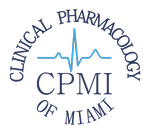There are over 100 types of liver disease caused by viruses, genetics, obesity, and more. However, most cause damage to the liver and progress in similar ways regardless of the underlying condition. As the disease progresses and damages the liver. Over time, it begins to lose the ability to perform its vital functions. When severe liver disease sets in, managing symptoms and halting progression are necessary for quality of life. Though there may be a limit of treatment options, participating in a research study may help.
Disease and Damage
As liver disease progresses, the body’s immune system sends help to the liver to heal it. This results in chronic inflammation that, under control, is essential in maintaining proper balance and function. However, persistent inflammation continuously sends signals to the repair cells to keep depositing collagen. Typically, collagen stiffens around the tissue in a healthy liver. Then, a signal stops the inflammation and discards the extra collagen.

More collagen is deposited when the inflammation continues. As a result, causing more stiffening and the formation of scars or fibroids in the liver. These scars will continue to replace healthy liver cells without treatment, leading to severe scarring called cirrhosis.
Symptoms of severe liver disease:
- Fatigue
- Appetite loss
- Nausea or vomiting
- Mild abdominal discomfort or pain
- yellowing of the skin and eyes (jaundice)
- Bleeding or bruising easily
- Confusion or disoriented
- Fluid buildup in your abdomen, arms, or legs
- Darkening of urine
- Severe skin itching
Clinical Research for Severe Liver Disease
If a diagnosis is made early on, with proper treatment, the liver can repair itself, reversing the damage. Reversal is less likely in the later stages. Though, following your doctor’s recommendations and making lifestyle changes can slow or stop the progression.
Treating the later stages of liver disease involves medications to resolve an underlying cause and supportive care to manage symptoms. Your provider may take steps to save any remaining healthy part of the liver. Or, you may need a transplant. Potential new options are under evaluation in clinical research studies. The hope is to improve the care of those diagnosed with severe liver disease.

Clinical research volunteers are instrumental to the advancement of medicine for conditions like liver disease. Participants may gain access to these potential new therapies that aren’t available to the public. To learn how you can get involved in upcoming liver disease studies here at Clinical Pharmacology of Miami, call (305) 817-2900, or visit our website.
References:
https://www.webmd.com/digestive-disorders/digestive-diseases-liver-failure
https://www.healthline.com/health/liver-failure-stages#diagnosis




